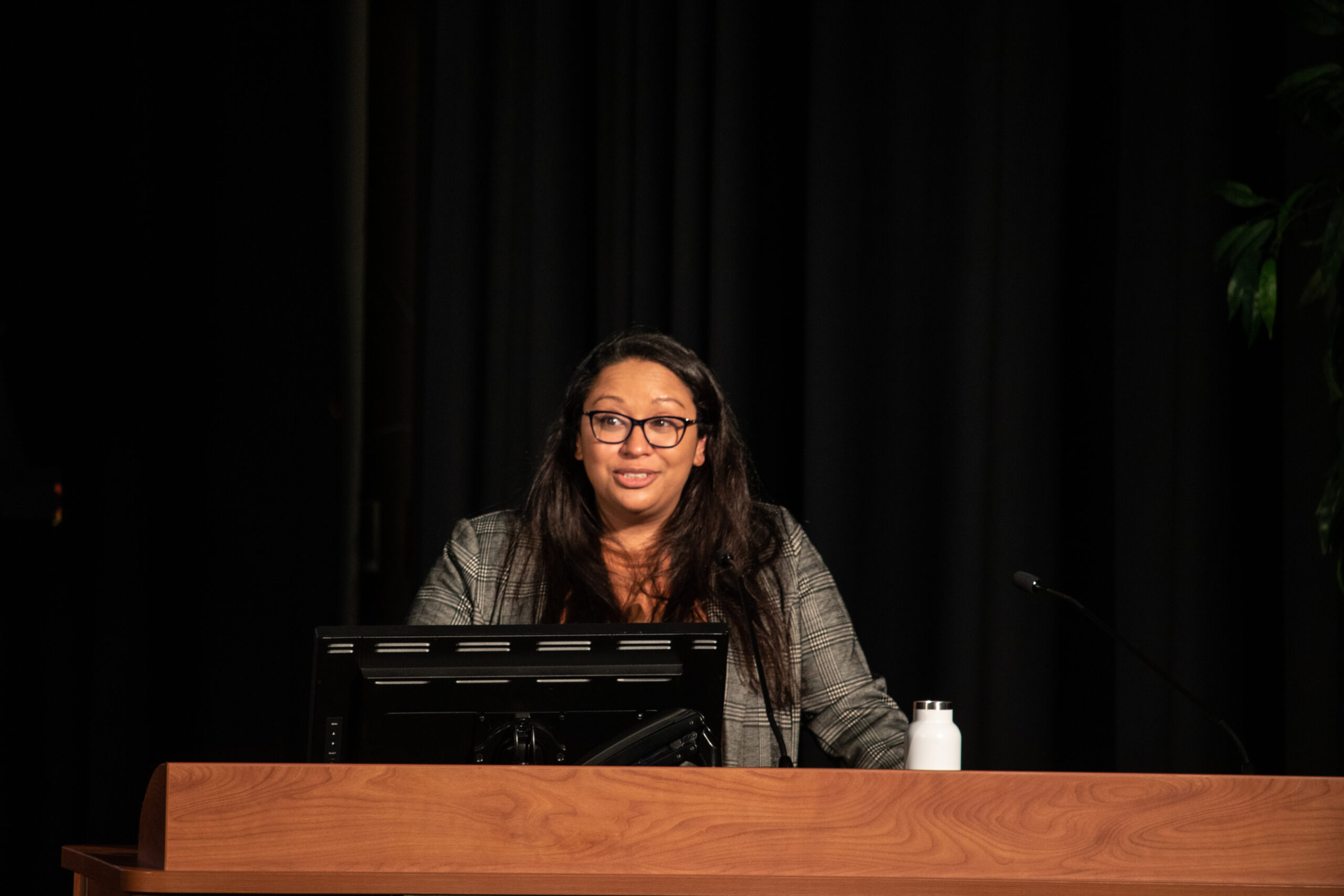Water scientist Kelsey Leonard spoke about how Indigenous populations are affected by rising sea levels as a result of climate change at the first Honors Colloquium of the semester. PHOTO CREDIT: Erin Brown
The University of Rhode Island started their fall 2021 Honors Colloquium series entitled “SOS: Sustaining Our Shores” on Tuesday with water scientist Kelsey Leonard.
President Marc Parlange opened the series by reflecting on the unique connection the series topic has to URI, with Rhode Island being known as the Ocean State.
“We want the world to love the ocean as we do, and we hope to contribute a deeper understanding of our ecosystems,” Parlange said. “We should enjoy and use our oceans wisely.”
Leonard’s talk focused on the impact of rising sea levels on Native American tribes. An assistant professor at the University of Waterloo, Leonard has received prestige for her work. She has been named a North American Association of Environmental Education 30 Under 30 world environment leader and her TED Talk on the rights of lakes and rivers has over 3 million views.
She is also a member of the Shinnecock Nation, a Native American tribe that lives on Long Island, New York. In acknowledgment of her tribal background, Leonard opened the presentation with a prayer led by Elder Dawn Dove, a leader of the Narragansett tribe.
In her opening, Dove spoke about the fact that URI is built on Narragansett land. In an effort to repay that land loss to the Narragansett people, starting this year all Narragansett tribe members are offered a scholarship at URI if they choose to attend the University.
“It’s very exciting for our young people and our older people too that our state university is recognizing the Narragansett people,” Dove said.
Leonard introduced the audience to the tribal lands of the Shinnecock people and the challenges that they face due to climate change. Her speech centered on the consequences of rising sea levels resulting from climate change.
There are many overlooked consequences of rising sea levels for Native American communities, according to Leonard.
“Tribal nations face distinct challenges to water security given increasing sea level threats,” she said.
Leonard stated that many tribal nations already have less access to water and water-based resources than other Americans.
They are also facing overpopulation due to the limited land given to many tribes. This, according to her, has led many natives to move off of their native territories. For coastal tribes, land loss is a huge threat for those who don’t even have much land to begin with according to Leonard.
“Some of the basic water infrastructure you have in your homes are not guaranteed in tribal territories, like turning on your tap and having access to clean water,” Leonard said. “That’s not a daily reality for most of our generations.”
Leonard touched on the threat of climate refugees, people having to migrate to a new area because of losing land due to sea level rise and other side effects of climate change.
“Climate refugees are real, they already exist,” she said. “From Indigenous villages in Alaska to the coast of Louisiana hit hard by the hurricanes. We have already lost land and more will continue to.”
The best hope for combating climate change is for both native and non-native communities to work together to create a solution, according to Leonard.
She called on all community members to take responsibility to protect the natural world and give more than we take. She said that it will take “global solidarity” to address the problems that climate change has caused.
“Every student on every major campus around the world has the opportunity to tackle climate change challenges in their own way,” Leonard said. “Their everyday actions have a role in protecting or deteriorating our planetary life.”





